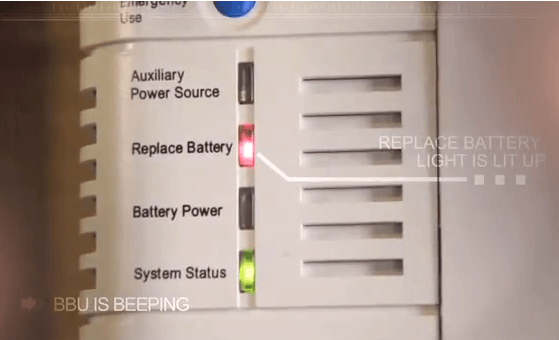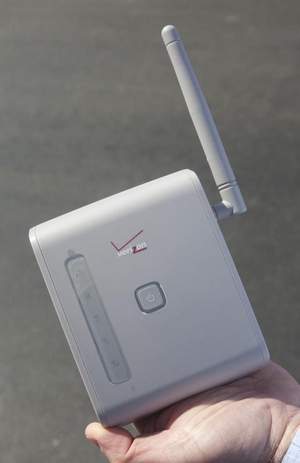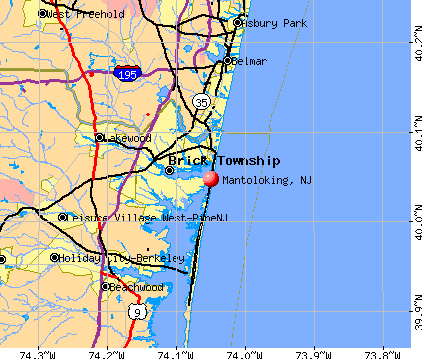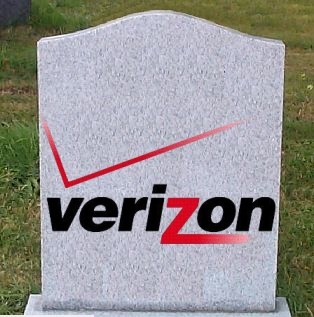
Verizon says customers are responsible for maintaining and replacing backup batteries used with its FiOS service.
Beep. Beep. Beep.
Verizon FiOS phone customers will one day hear that ominous sound in their home and begin searching for the source. The audible alarm isn’t coming from the smoke detector or your computer’s uninterruptible power supply. It is coming from a square white box mounted in your garage or basement with a Verizon logo on it.
The Verizon Optical Network Terminal (ONT) Battery Backup Unit (BBU) provides up to eight hours of backup power for your FiOS voice services in the event of a commercial power failure.
Verizon considers its battery your problem, even though you lease the equipment from Verizon as part of your monthly service. After one year of standard warranty coverage, customers are responsible for maintaining the battery and for any damages that might occur if one fails to replace or remove it. Verizon’s website warns not promptly removing the spent battery could result in leaking corrosive battery acid which might damage the BBU itself. You would be held responsible for any repair or replacement costs.
Some Verizon FiOS customers cannot understand why they should pay to maintain equipment Verizon still technically owns.
“They require us to lease the equipment (set-top boxes, wireless router, backup battery device, etc.) so they are responsible,” believes one disgruntled customer. “If they would sell it to us or allow us to provide our own I could see us paying for it.”
Verizon representatives say they fully disclose customers are responsible for maintaining the battery. But customers complain it is buried in the fine print. Many more are unhappy to learn Verizon charges at least $45 for a replacement battery that seems to last only about two years.
 Joanne Gaugler is on her third battery in seven years, and that one is now on its way out.
Joanne Gaugler is on her third battery in seven years, and that one is now on its way out.
“The battery I have now has been beeping for a long time,” Gaugler wrote.
Not only does the battery beep incessantly, but the company also begins sending e-mail messages warning customers they need to replace it to avoid the possibility of damaging their equipment.
“When I called about this problem ten months into my FiOS service, the representative had me remove and reinstall the battery, claiming it was probably a loose connection and that I did not need a new battery,” says Stop the Cap! reader Jim Connor. “When I called back about the same problem 13 months into my FiOS service — one month out of warranty — the representative insisted I buy a new battery.”
Connor said Verizon charges an exorbitant amount for the replacement.
“Another profit center for Verizon, because they charge $35 for the battery and another $9 to ship it, before taxes,” Connor writes. “I ended up paying $10 less at a local battery replacement store, but Verizon got all bothered I did not buy it from them, warning it could ‘damage my service.'”
Verizon strongly discourages customers from buying replacement batteries from anyone other than themselves and disclaims any responsibility for damages caused by “an improper battery.” Verizon also offers customers free battery replacement if you happen to buy a Verizon Protection Pak plan, which starts at $19.99 a month.
There is nothing special about Verizon’s backup battery, a standard issue 12-Volt 7.2Ah SLA (Sealed Lead Acid) model often found in home alarm systems. Frugal Verizon FiOS customers can find equivalent batteries online for less than half the price Verizon charges, often with no upfront sales tax or shipping.
A Stop the Cap! search for “GS Portalac PX12072” or “GT12080-HG” (from labels on current batteries) on websites like Amazon or eBay quickly uncovered several highly rated alternatives that cost as little as $18 with identical specifications.
Batteries of this type have a shelf life of 3-5 years, and an in-service useful life of 1.5-3 years, after which they should be replaced and recycled.
Another alternative is to simply remove the battery altogether. That will result in no backup landline service in the event of a power failure, but your cell phone may already offer a suitable alternative.
[flv width=”640″ height=”380″]http://www.phillipdampier.com/video/KDKA Pittsburgh Verizon FiOS Battery 5-09-13.mp4[/flv]
KDKA in Pittsburgh reports around 10 Verizon FiOS customers a day are flooding into local Batteries Plus stores looking for new batteries for the company’s equipment. (4 minutes)
[flv width=”640″ height=”380″]http://www.phillipdampier.com/video/Verizon Install Replacement Battery 2012.flv[/flv]
Now that you have a replacement battery in hand, here is a Verizon-produced video explaining how to safely install it. (4 minutes)


 Subscribe
Subscribe Verizon Communications has filed a formal tariff
Verizon Communications has filed a formal tariff  Although Verizon has currently only applied to drop wired service to the “western portion of Fire Island,” the tariff would set conditions under which Verizon could abandon its landline network for financial reasons in other portions of the state. For example, Verizon could argue that its declining number of rural landline customers are no longer financially viable to serve because of wired network upkeep and upgrade expenses. Verizon’s application would also allow it to abandon older facilities where competitive services (wireless or wired) are available, and allow Verizon’s wireless products to be considered a suitable alternative to meet universal service requirements.
Although Verizon has currently only applied to drop wired service to the “western portion of Fire Island,” the tariff would set conditions under which Verizon could abandon its landline network for financial reasons in other portions of the state. For example, Verizon could argue that its declining number of rural landline customers are no longer financially viable to serve because of wired network upkeep and upgrade expenses. Verizon’s application would also allow it to abandon older facilities where competitive services (wireless or wired) are available, and allow Verizon’s wireless products to be considered a suitable alternative to meet universal service requirements.
 Six months after Hurricane Sandy struck the northeastern United States, a significant number of Verizon customers are now learning they will never get their landline service back.
Six months after Hurricane Sandy struck the northeastern United States, a significant number of Verizon customers are now learning they will never get their landline service back.
 The FCC’s short response to Anne’s detailed complaint:
The FCC’s short response to Anne’s detailed complaint:
 Verizon Communications has filed separate requests with the New York State Public Service Commission that would report customers’ payment histories to credit reporting agencies, share your payment history with competing providers, and increase phone bills statewide to recoup expenses related to construction costs.
Verizon Communications has filed separate requests with the New York State Public Service Commission that would report customers’ payment histories to credit reporting agencies, share your payment history with competing providers, and increase phone bills statewide to recoup expenses related to construction costs. Late phone company payments appearing on a consumer’s credit report can be devastating to a consumer’s general credit score, which can affect credit lending decisions, home purchases, apartment leases, insurance rates, and employment prospects. Disconnected, unpaid accounts turned over to an independent collection agency may already appear on credit reports, but Verizon late-payers who still have service with the company
Late phone company payments appearing on a consumer’s credit report can be devastating to a consumer’s general credit score, which can affect credit lending decisions, home purchases, apartment leases, insurance rates, and employment prospects. Disconnected, unpaid accounts turned over to an independent collection agency may already appear on credit reports, but Verizon late-payers who still have service with the company  Other Service Charges and Rate Hikes:
Other Service Charges and Rate Hikes:
